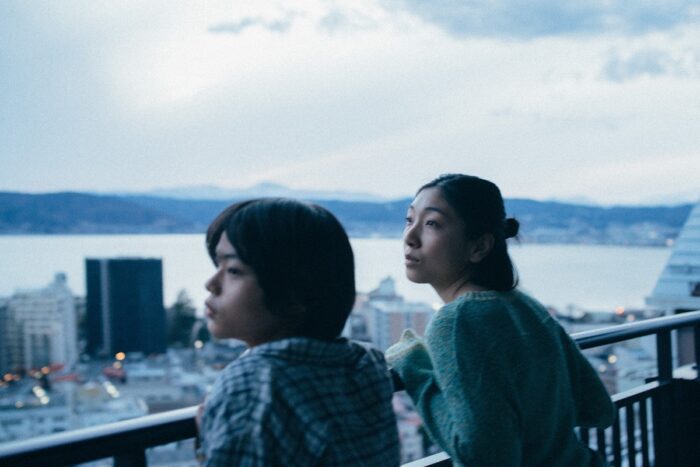Very rarely will a film come along that’s so good you don’t want it to end. Hirokazu Kore-eda’s Monster is such a film, one that is so manifold and poignant in the variety of experience that it offers, with the film’s tone and affect shifting like the Croisette sand under the viewer’s feet as it holds a kaleidoscope up to the scenario it portrays, that it’s impossible to take your eyes off the screen. It’s one of those exhilarating cinema experiences that urges you to repeat it as soon as it’s over, leaving you firm in the belief that yet more of it’s beautiful mysteries remain to be explored and unearthed. Even as a devotee of Hirokazu Kore-eda’s oeuvre, who went in with this as their most anticipated release of the whole festival and believing that Kore-eda can basically do no wrong, I still had to pick my jaw up off the floor when I realized how good the film I was watching was. It had absolutely captivated me, and might yet be Kore-eda’s greatest achievement to date.
In most so-called Rashomon type stories, even the film from which the term takes its name, the story doesn’t truly fit what most people mean by a “Rashomon tale” where the same events present entirely differently according to each character’s perspective. In most, someone is just lying to cover themselves or deliberately distort the truth. But what Kore-eda has constructed here, are three perfectly incomplete yet compatible perspectives on the same story and the deeper we dive into it, the more of an empathetic marvel it becomes. This is the kind of film I watch movies for, intelligent, poignant, moving and electrifyingly unpredictable.
The film opens through the eyes of Saori (Sakura Ando) a hardworking and concerned single mother whose son Minato (Soya Kurokawa) has been coming home from school increasingly distressed and whose behaviour has been increasingly erratic. After probing him for answers, he eventually accuses his teacher Hori (Eita Nagayama) of repeatedly verbally and physically assaulting him, but when she brings her concerns to the faculty, their maddeningly unfeeling response leaves her aghast. We then see the story unfold through that teacher’s eyes, and finally through those of her son, each one holding precisely one third of the truth, until the full tragic picture is all but revealed, as an exquisite, transcendent epic of first love, deception, shame, misunderstanding and regret.

Whether or not this is Kore-eda’s best film yet, it certainly marks a new high for the director in terms of scope, ambition and narrative complexity. Kore-eda’s previous films were small, intimate family, dramas, exploring the poignancy and tragedy of very everyday situations and characters, but Yuji Sakamoto’s genius script for Monster reaches a new level of intensity of melodrama and a breadth of scope that encompasses multiple genres, tones and interpretations. At times, one feels as if it might be about to morph into a twisted and nightmarish a horror film, yet by the end, it’s the most tender and uplifting of coming-of-age stories. The film’s sublimely beautiful third act manages to do what Lukas Dhont’s Close seemed to be trying, and failing to achieve and does it so elegantly and without feeling manipulative. That it has such a mastery of atmosphere and tone is testament to the whole cast and crew, though surely special mention has to go to the legendary and recently departed composer Ryuichi Sakamoto, to whom the film is dedicated, and whose compositions help bring the film to the transcendent level it exists on.
The film’s title, Monster is undeniably overused and maybe sets the viewer up for some kind of serial killer thriller or something, but I’ve never seen it made such multi-dimensional use of here. I love titles with really deep references, and this is a perfect example. Every major character in Monster is referred to as a ‘monster’ at some point, everyone is all too ready to see one another’s behavior as inhuman and inexplicable, that for someone not to see things your way, they must have something wrong with them, a moral deficiency that makes them less than human, closer to animals, something to be frightened of and to push away. But of course, all these characters are human (spoiler, I guess, there was a brief moment where I wondered if they weren’t) and its their humanity that makes them behave as they do. Humans are all to capable of becoming monsters, if they embrace their ignorance, abandon empathy or allow themselves to be beholden to prejudices or protocols.

The performances are phenomenal and they have to be, as each of these roles must appear like completely different people according to whatever character’s perspective we are sutured into. I freely admit that it’ll take me repeated viewings to fully unpack what’s going on in each of these stories and how they misdirect the viewer, but every moment of the journey is never less than enthralling. Constructed as a mystery film, Sakamoto keeps you on the edge of your seat, wrong footing you with such piercing skill and purpose, it’s an embarrassment of riches as the film invokes so many themes, possibilities and techniques and spans so many tones. Although his films are always praised for the subtlety, I adore that Kore-eda is a melodramatist at heart, and I’m a sucker for movies climaxing during extreme weather events, that’s probably no small factor in my loving After the Storm so much.
Few films this year have left me so enchanted and none so astonished. At times, it left me positively slack jawed at its inspiration, tenderness and audacity. It was the first of the three films I’ve seen this year that will soon complete for the Palme d’Or and I feel coarse making such a premature proclamation, but I don’t see anything else topping this for me. It’s no exaggeration that if it won, it would be one of the best films ever to receive the honor.



